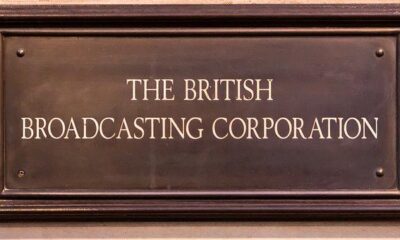According to a new report, the BBC’s license fee will be abolished in 2027 and the broadcaster’s funding will be frozen for the next two years.
This was revealed by the government in a statement that will force the broadcaster to shut down services and make further redundancies.
Nadine Dorries; Secretary of Culture announced that the price of an annual license required to watch live TV and access iPlayer services will remain at £ 159 until 2024, before rising slightly in the next three years. She also said this would be the end of the current license fee funding model for the BBC, which raises doubts about the long-term future of public service broadcasting under a Conservative government.
Dorries said: “This announcement of licensing fees will be the last. The days when the elderly were threatened with prison sentences and the bailiffs knocked on the doors are over. Now is the time to discuss and debate new ways to finance, support and sell great British content. “
The announcement was briefed by the media as part of a series of measures designed to bolster public support for Boris Johnson after he faced calls for his resignation as prime minister.
The BBC will have to negotiate with the government on a completely new financing model when the final licensing agreement on financing expires in 2027 – which increases the prospect of a subscription service or partial privatization.
The Mail on Sunday quoted an ally of Dorries as saying: “There will be a lot of desperate noises about how it will hit popular programs, but they can learn to cut waste like any other business. This will be the last BBC license fee negotiation. Work will begin next week with a mid-term review to replace the Charter with a new funding formula.
“It’s over for the BBC as they know it.”
The source added that “the days of state-run television are over” and praised the growth of US-powered companies like Netflix and YouTube.
Although the BBC will continue to receive £ 3.2 billion a year in licensing revenue, the cost of making its programs is rising rapidly due to rising inflation and competition from Netflix like Netflix. As a result, the company will have to earn hundreds of millions of pounds in expense savings to balance its books.
The BBC has already made significant behind-the-scenes cuts, meaning the next round of cuts is likely to hit on-air services. As a result, the public should be prepared for the BBC to provide less high-end drama and sports coverage, write schedules with cheaper programs and potentially shut down some channels or services altogether. This, in turn, could erode support for the BBC if the public no longer feels they are getting value for money from the license fee.
The license fee agreement will cover a five-year period until 2027, when costs to the public are likely to increase over the last three years – although this increase may also be below inflation, meaning further cuts in BBC production are required.

Dorries’ allies said there would be no further licensing agreement under a Johnson government and they would look into finding a new financing model for the company. Calls for the BBC to become a paid subscription service have always been undermined by the widespread popularity of radio and Freeview TV services, which cannot be put behind a payment wall.
The BBC has already prepared for the end of the licensing fee with proposals, including a universal broadband subscription fee or funding for the broadcaster with a general tax subsidy – though this could undermine its editorial independence and leave it even more in the lukewarm state funding.
Negotiations on the amount the BBC can charge for the license fee have been going on for some time, with a final agreement delayed by Dorries’ appointment in the autumn. The government has put considerable pressure on the company’s news output and claims that it is biased against the government, while negotiating the company’s financial future.
The BBC has faced repeated deep real spending cuts since the start of the Tory / LibDem coalition government in 2010, when conservatives forced the BBC to pay for free licenses to those over 75 – and then blamed the BBC for taking the benefit away .
A BBC source said of the license fee proposals: “There has been similar speculation before. There are very good reasons to invest in what the BBC can do for the UK public and the creative industries and the UK around the world. Anything less than inflation would put unacceptable pressure on the BBC’s finances after years of cuts. “
































